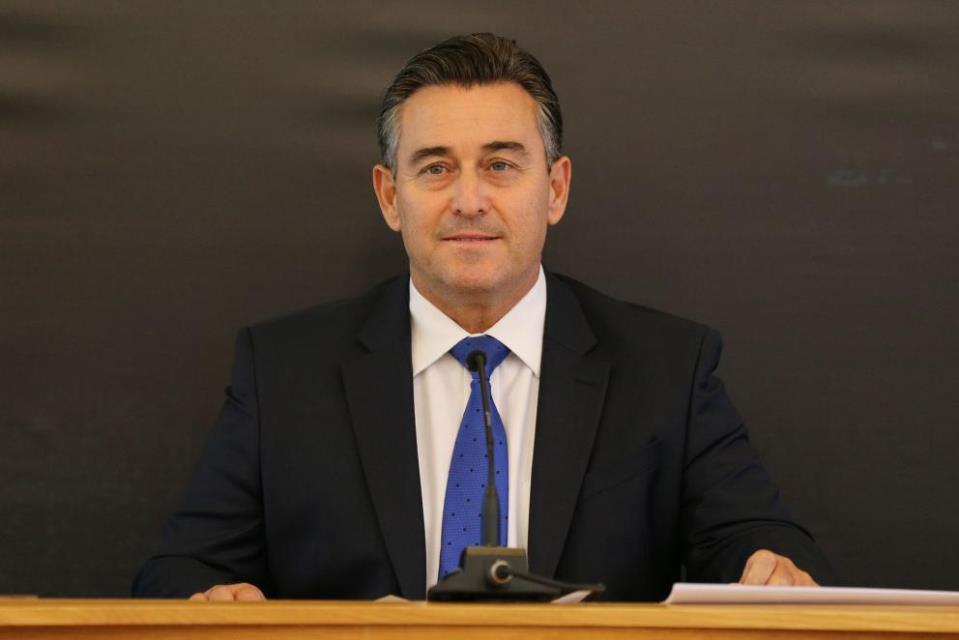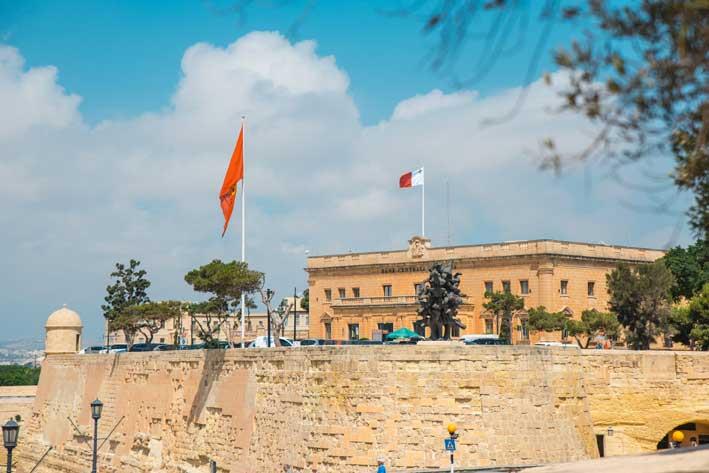The Nationalist Party launched its pre-Budget 2022 document on Saturday, focusing on rebuilding Malta’s reputation, the rule of law, an economic transformation, the environment, the cost of living and Malta’s sustainability.
The PN’s pre-budget proposals also give a holistic view of Malta’s economic situation compared to EU and non-EU countries.
During a press conference outlining the PN’s pre-budget proposals with the theme: Recovery, Growth and Success, Opposition Leader Bernard Grech said that this allows for new economic opportunities which will improve Malta.
Grech said the fiscal deficit, estimated to be around €1.5 billion, was a result of various factors that are related to the pandemic but not only.
Grech said that this is also related to the inefficiency in public procurement and the inconsistent use of uncompetitive prices when government purchases certain services.
He said the government needs to make the best possible use of public funds and taxes. The party believes that one of the government’s shortcomings was this inefficiency, especially when it signed the Steward Healthcare and ElectroGas contracts.
“It is our obligation as a Nationalist Party to stop wasting public funds and put an end to this inefficiency by having real procurement rules and working on those that already exist in an earnest manner,” Grech said.
PN spokesperson for finance Mario de Marco spoke about the pre-budget proposal document, which highlights five main areas of concern. These include the Rule of Law, the impact of Covid-19 on the economy and society, public finances, labour market and new economic opportunities.
He highlighted that these proposals were not developed by the party alone, but they include proposals which have been put forward by stakeholders who were present at the press conference as well.
Re-establishing Malta as a Centre of Excellence
Following Malta’s FATF grey listing, the Nationalist Party believes that much needs to be done to restore Malta’s reputation not least by doing away with system of political patronage, guaranteeing state authorities’ autonomy and independence from government’s control, De Marco said.
The PN put forward 10 proposals to help restore Malta’s reputation and strengthen good governance.
The PN suggested that an investigation should be carried out in every awarded public contract for which the Auditor General has found administrative or government shortcomings.
The role of the Office of the Ombudsman should also be strengthened, whilst a review of the parliamentary Committee on Standards in Public Life should be carried out.
De Marco added that the government should undertake a process of audit of legislative, regulatory and institutional standards with the purpose of identifying what is needed to establish a regime which prevents collusion between politicians and businesses.
A committee of experts should also be appointed to analyse and propose the required reform to public procurement with the scope of ensuring a level playing field for businesses, De Marco said.
Moreover, the PN also proposed the introduction of new laws against abuse of public office as well as review of code of ethics and actions consequent to breach.

De Marco highlighted that the party believes a taskforce of experts should be appointed to review the capacity and knowledge base of institutions tasked with fighting money laundering.
This taskforce would also work on proposing an action plan with targeted objectives and outcomes to ensure that institutions like FIAU and FCID, build necessary capacity and capability to investigate and prosecute successfully, De Marco added.
The FIAU and FCID should also be provided with a budget which is sufficient for each of them to be able to compete on the market for the best human resources available. Continuous high level on-the-job training for officers of both institutions should be provided, De Marco said.
The PN also proposed the introduction of an unexplained wealth legislation which would allow investigative authorities to issue unexplained wealth orders on persons whose official income does not explain their assets.
Malta’s post-pandemic economic recovery
The second theme of this document related to the Covid-19 pandemic. De Marco said that although many sectors are recovering, there are still those within the wholesale, retail, hospitality, and transport sectors which are suffering.
Consequently, the party put forward a broad range of proposals to help ensure that Malta emerges from this crisis by helping those sectors get back on their feet.
Those sectors which were most impacted still need to be supported by the government to enable them to recover and bounce back. Relief should be provided in a targeted yet temporary manner within a framework to enable necessary restructuring efforts, to achieve sustainability and safeguard jobs, De Marco said.

A clear time-lined plan of decisions should also be provided to reduce uncertainty and to enable enterprises to plan the restructuring of their activities and alignment to measures in place. Apart from this, the party also believes that enterprises should be stimulated to invest in their businesses by granting tax efficiency on re-invested profits and more tax efficiency for capital investment.
Develop sustainable government finances
In a bid to develop sustainable government finances, the Nationalist Party believes that public spending plays a crucial role in Malta’s economic recovery and should therefore be applied judiciously in a manner to deliver long term return.
De Marco said the government should also allocate spending priority for further investment in infrastructure, not only in the completion of roads works but also when it comes to improving and strengthening the robustness and security of Malta’s digital infrastructure.
In addition, the government should also fund a campaign in favour of fiscal morality, dedicate funds and resources to focus on compliance, AML, financial intelligence, tax evasion and the black economy, and conduct a study on the potential impact of Corporate Tax harmonisation on the Maltese economy.

This would be done to establish mitigation measures, alternative solutions if necessary and to ensure that Malta remains a jurisdiction of choice for foreign investment, De Marco explained.
Meanwhile, work on upgrading the Maltese corporate and individual tax systems, with a view to targeting the key economic objectives that Malta is to have over the next decade should also be considered.
Establish efficient labour and economic policies for Malta
The Nationalist Party put forward another 26 proposals for a labour policy for workers and businesses.
De Marco explained these proposals and said that the party believes in expanding the 25% tax bracket so as to encourage people to become more tax compliant.
He also said that the government should expand the bracket of who starts paying VAT from €30,000 to €60,000, launch the long-overdue revision of the COLA system, enable greater flexibility and scope of local childcare systems, amongst others.
He also said that the current work permit process needs to be improved including simplification and incorporating digitalisation. Work permits should also be renewable every three years following first successful year of third-country nationals.
With regard to Malta’s economic policies, De Marco highlighted that the Labour’s economic policy failed to create new business ventures for Malta except for the sale of citizenship.

“Poor governance led to the weakening of established economic sectors as the government focused on short term gain and long-term pain,” De Marco said.
The Nationalist Party’s economic policy focuses on three main pillars, namely investment in human resources, good governance and sustainability.
“The human person is at the centre of our economic policy,” he said.
During the conference, De Marco also gave a general economic overview, saying that in 2020 the European economy decreased by 6%, whilst Malta’s economy decreased by 7.8%. He noted that as a result this led to the largest decrease after that of Spain, Italy, Greece, Croatia and France.
Meanwhile, the global economy in 2021 is set to grow by 5.7% and by 6% in 2022. The EU is predicting slower growth rates including 4.8% (2021) and 4.5% (2022).